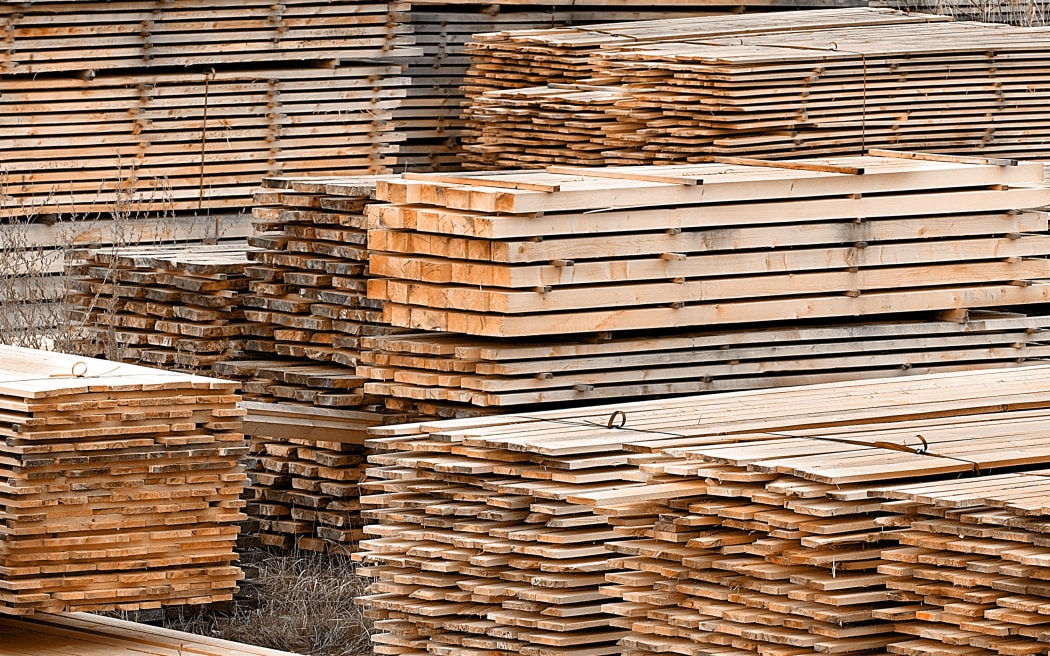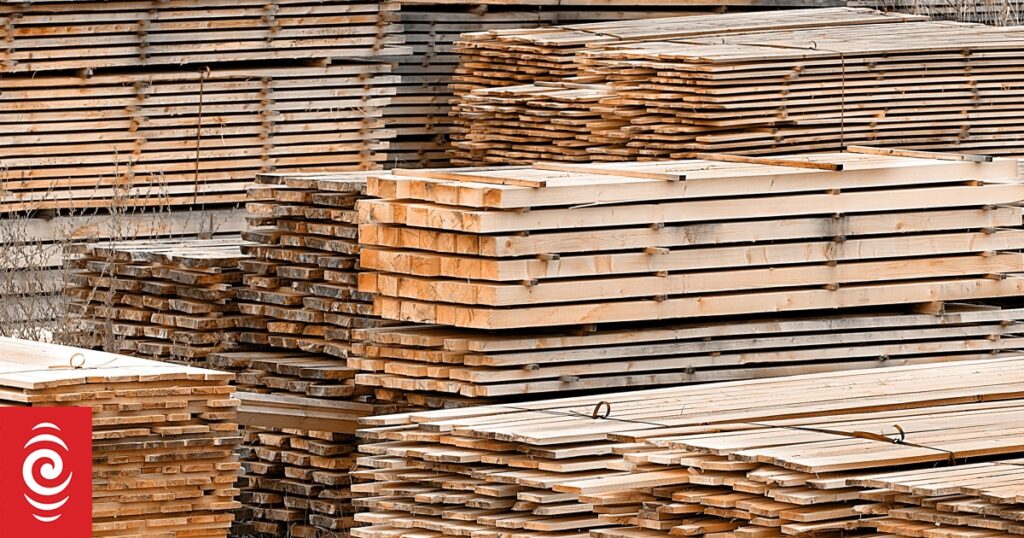Experts say pressure on supply lines has led to shortages of timber and other products, causing some companies in the construction industry to stockpile materials.

(File photo)
photograph: 123RF
Shortages had been felt across the industry, but Carter Holt Harvey's decision to stop supplying structural timber to major retailers had caused further panic among builders, said Julian Reyes, chief executive of the Building Industry Federation. Morning Report.
The Commerce Commission said it would investigate the company's decision to stop supplies to some customers while continuing to supply other large customers.
Reyes said the shortage is alarming.
“This is not happening at a good time. Demand-wise, we're in a booming market we've never seen before. What we're seeing here is a 5-10% shortage of overall lumber.”
“So the question is, can we ramp up capacity in our existing factories to meet that supply?”
He said the short answer is “no.”
“Even if you look at something like laminated veneer, we have three factories across the country, all of which have been running at full capacity since August, and obviously the other factories are running at full capacity as well.
“We cannot import timber because other markets around the world are in a similar situation to ours.”
He said the situation may have reached a stage where intervention by industry and governments is needed and that individual companies can look at ways to prevent more domestic timber from being exported overseas as raw material and supply more material to local sawmills.
“Top prices are being paid for our export logs, and that includes structural timber,” he said.
“Some sawmills, such as Carter Holt Harvey, have invested $100 million in upgrading their sawmills. If there were some kind of tax incentive, it would certainly help other sawmills, many of which exist across the country, to add capacity in the future.”
“Maybe some of the exporters here can put some of that back into the local market. I think there are some levers and incentives to make that happen. That's something the industry, and maybe the government, should be talking about.”
He also hopes that “contracts, loyalty, trust and networks” will provide some stability.
The rise in raw timber export prices was a boon for timber producers but came amid efforts to increase housing construction to address the shortage.
“I think the government is certainly listening,” Reyes said. “I think they're making some good moves in terms of adding more supply to the housing market. [the wood and timber shortage] It's a problem for the industry, and if they [export] The tariffs will undoubtedly have a deterrent effect on some of the timber being exported overseas.”
Shane Letty, National Vice President First He was concerned about the closure of Carter Holt's Whangarei factory, which was thought to employ about 150 people.
“We have serious concerns about the plans Carter Holt Harvey has made, or has not made, and the wisdom of their decisions. This comes at a time when we want to build homes and we need materials. This is the worst possible timing.”
“I believe Carter Holt could have done a better job planning it, and that there are still ways to better allocate what are clearly scarce resources.”
Carter Holt Harvey said in a statement yesterday that there were short-term supply issues across the industry.
The company said it continues to meet its contractual obligations and that the supply cuts relate to about 10% of its structural timber volumes.
“There's no doubt that the construction industry is booming. There are some short-term supply issues across the industry,” the company said.
“Since 2018, CHH has invested significant capital in expanding its production capacity, which has resulted in a 40 percent increase in structural timber supplies compared to 2019. Further capacity expansions are on track.”
The company said it had no issues with log supplies and was not exporting structural timber.

